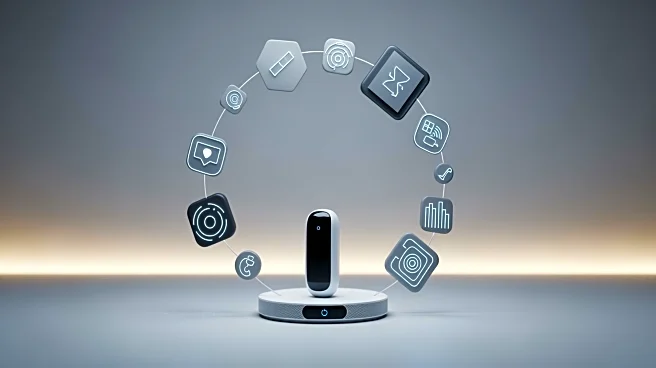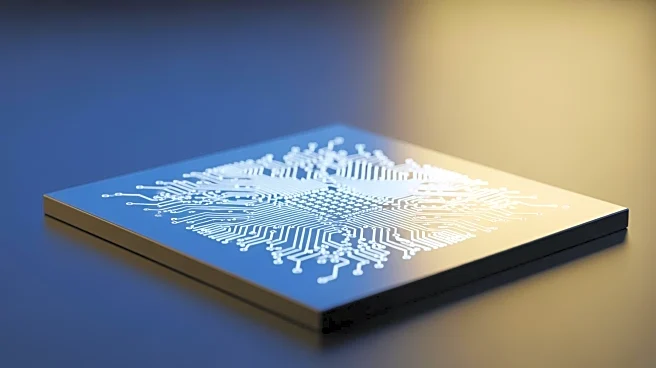What's Happening?
Ikea has announced a new line of affordable Matter-over-Thread smart home devices, marking a significant shift towards more open and interoperable smart home solutions. The lineup includes 21 new products such as smart bulbs, remote controls, and sensors,
with prices starting as low as £3 in the UK. These devices are designed to work with any smart home platform, thanks to the Matter standard, which promotes interoperability among different brands and ecosystems. Ikea has also updated its Dirigera hub to function as a Matter controller and Thread border router, supporting the new products. The launch is set to begin in Europe this month, with a U.S. rollout expected in January.
Why It's Important?
The introduction of these Matter-compatible devices by Ikea represents a major step forward in simplifying smart home technology for consumers. By adopting the Matter standard, Ikea is helping to eliminate the complexity and compatibility issues that have historically plagued smart home setups. This move is likely to benefit consumers by providing more affordable and versatile options for home automation, potentially increasing the adoption of smart home technology. Additionally, Ikea's commitment to interoperability could drive other manufacturers to follow suit, further expanding the ecosystem of compatible devices and enhancing user experience.
What's Next?
As Ikea rolls out these new products, consumers can expect greater ease in integrating smart home devices across different platforms. The company's focus on affordability and simplicity may encourage more households to adopt smart home technology. Furthermore, Ikea's investment in Matter and Thread protocols suggests ongoing innovation and expansion in their smart home offerings. Other major players in the smart home industry may respond by enhancing their own product lines to maintain competitiveness, potentially leading to a broader market shift towards interoperable solutions.
Beyond the Headlines
Ikea's strategic move into the smart home market with Matter-compatible devices could have long-term implications for the industry. By prioritizing interoperability and affordability, Ikea is setting a precedent that may influence consumer expectations and industry standards. This could lead to a more unified smart home ecosystem, reducing fragmentation and enhancing user experience. Additionally, the integration of smart technology into everyday home furnishings may redefine consumer perceptions of home automation, making it a standard feature rather than a luxury.

















